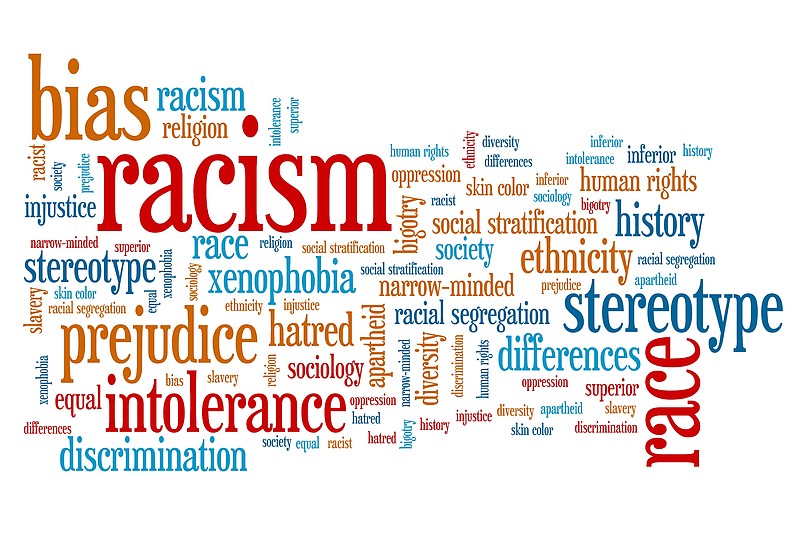If the political climate of 2016 has done nothing else, its rhetoric has brought into pinpoint focus our nation's shameful and persistent underbelly of bigotry and racism.
"This is a dark moment in our national conversation," said the Rev. Raphael G. Warnock, senior pastor of Ebenezer Baptist Church in Atlanta, the church where the Rev. Martin Luther King Jr. was once a pastor.
"Those of us who understand that we are better together had better raise our voices, because there are others who are trafficking in theater, in paranoia - and they ply the trade of fear as part of their political craft."
If you need an example, think of Donald Trump deriding members of the Black Lives Matter movement.
Warnock made those comments to The New York Times recently for a story about former President Jimmy Carter's renewed call to heal what Carter sees as a resurgence in the nation's racial divide. Carter wants to start with divisions among the Baptists and then build on that to help the country mend.
The nation's 39th president, who won the Nobel Peace Prize in 2002, is hopeful, because as he told The New York Times last week, "I think the country has been reawakened the last two or three years to the fact that we haven't resolved the race issue adequately."
He ticked off the observations that led to his reasoning: Republican animosity toward President Obama had "a heavy racial overtone," and Donald Trump's surprisingly successful campaign for president had "tapped a waiting reservoir there of inherent racism."
But Carter, a Democrat, also said recent reports showing high unemployment and incarceration rates among black people, "combined with the white police attacks on innocent blacks," is waking the country to the realization that racism was not resolved in the 1960s and '70s.
Despite the GOP's continuing political rhetoric inciting more bigotry, a mid-2015 Pew Research poll about race in America indicates many would agree with Carter.
* About six in 10 Americans said the country needs to continue making changes to assure that blacks have equal rights with whites. That is an increase from 39 percent who saw a need for change a year earlier.
* A growing share of Americans - 50 percent, up from 33 percent five years before - said racism in society is a big problem. The increase was reflected across all demographic groups.
* Even before a recent series of police shootings of blacks, two thirds of Americans gave police departments around the country relatively low marks in treating races equally.
* Six in 10 Americans supported South Carolina's removal of the Confederate battle flag from state grounds, a decision that was accelerated after the killing of nine black churchgoers in Charleston. The reason most cited by those who supported the flag's removal was that it represented racism and slavery.
* The wealth of white households was 13 times the median wealth of black households in 2013, marking the gap's highest point since 1989.
And every day, it seems we get new reminders.
In the presidential race, polls increasingly show the nation's racial divide by tracking the way each candidate forms coalitions of supporters. Hillary Clinton, a Democrat, wins majorities of groups that have seen their freedoms and share of the nation's resources grow in recent decades - women, blacks, Hispanics. Trump, a born-again Republican, wins majorities of groups that see themselves as having experienced a relative decline - whites and men.
Just last week, a U.S. Supreme Court overturned a black man's 1987 conviction for murdering a white woman (he had confessed to killing her, according to court papers) and rebuked Georgia prosecutors for unlawfully excluding black potential jurors largely on the basis of race to pick an all-white jury. The Supreme Court ruled in 1986, the same year as this killing, that it was (and is) unconstitutional to take race into account when excluding potential jurors. It took 30 years to review this case? How many more cases will now fall?
Also last week, Baltimore police officer Edward M. Nero was acquitted by a judge on four charges for his role in the opening moments of Freddie Gray's arrest just before the black man suffered a fatal spinal cord injury while in police custody in April 2015.
Gray had been walking through the Sandtown neighborhood in West Baltimore when he saw a group of officers and took off running. He was arrested and put into a transport van where, prosecutors and defense lawyers have said, his spinal cord was functionally severed; he died a week later.
Prosecutors said Nero and Officer Garrett E. Miller exceeded their authority by handcuffing, moving and searching Gray without first questioning and patting him down, as the law requires - essentially turning a lawful detention into an unlawful arrest. The prosecutors said Nero had committed misconduct by arresting Gray without probable cause, and that any physical contact they had made with him while doing so amounted to second-degree assault. The judge decided Nero was a bit player.
Former President Carter is right. We need to heal the divide and fix this.
But it will take more than a Baptist church movement.
